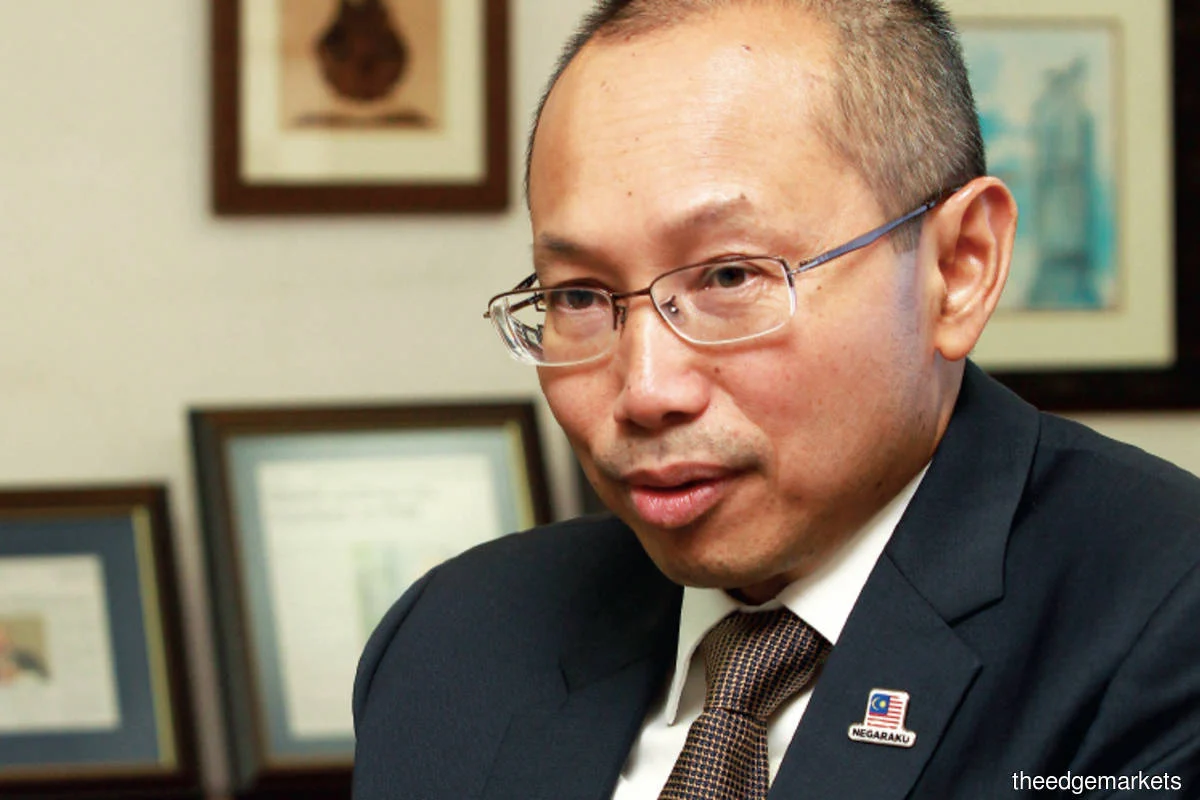Malaysia unlikely to get into recession, says Bursa chairman

Malaysia is unlikely to enter a recession despite high inflationary pressures worldwide forcing central banks to tighten monetary policy to curb inflation, according to Bursa Malaysia chairman Tan Sri Abdul Wahid Omar.
根据大马交易所主席Tan Sri Abdul Wahid Omar的说法,尽管全球通胀压力很高,迫使各国央行收紧货币政策以抑制通胀,但马来西亚不太可能进入衰退。
Apart from the benefits of pragmatic and responsive policies, Malaysia has over the years diversified the structure of the economy to be less dependent on commodities, he said.
他说,除了务实和响应性政策的好处外,马来西亚多年来还使经济结构多样化,以减少对商品的依赖。
“As the world economies progress towards a full recovery, new challenges have arisen, impacting Malaysia and our major trading partners. Within our globalised world, supply chains have been under pressure as economies begin to return to normal. US-China trade tensions and the Ukraine-Russia conflict have also caused commodity prices and logistics costs to skyrocket.
“随着世界经济迈向全面复苏,新的挑战出现了,影响了马来西亚和我们的主要贸易伙伴。在我们全球化的世界中,随着经济开始恢复正常,供应链一直面临压力。美中贸易紧张和乌俄冲突也导致大宗商品价格和物流成本暴涨。
"This in turn is causing high inflationary pressures globally, forcing central banks to tighten their monetary policy to rein in inflation, with China being the exception.
“这反过来又在全球范围内造成高通胀压力,迫使各国央行收紧货币政策以控制通胀,中国除外。
"This is likely to cause an economic slowdown, and potentially a recession in some countries in 2023,” Abdul Wahid said in a speech at the Invest Malaysia: Pivoting for the Future conference on 14th September.
“这可能会导致经济放缓,并可能在 2023 年导致一些国家出现衰退,” Abdul Wahid在9 月 14 日的“投资大马:为未来发展”会议上的讲话中说。
However, in Malaysia, he said the agriculture and mining sectors now contribute only 14% of the country’s gross domestic product (GDP), with the services sector contributing 57% and the manufacturing sector contributing 24.3% of GDP.
然而,在马来西亚,他说农业和采矿业目前仅占该国国内生产总值(GDP)的 14%,服务业占 GDP 的 57%,制造业占 GDP 的 24.3%。
“The diversity of our trading partners — where we are not overly dependent on one particular country — adds to our economic resilience,” he said.
“我们贸易伙伴的多样性——我们不会过度依赖某个特定国家——增加了我们的经济韧性,”他说。
A very important factor contributing to Malaysia's resilience is the strength and stability of the financial system, the chairman noted, as Malaysian banks are well capitalised, liquid, better managed, and effectively regulated and supervised by Bank Negara Malaysia.
主席指出,有助于马来西亚恢复力的一个非常重要的因素是金融体系的实力和稳定性,因为马来西亚银行资本充足、流动性强、管理更好,并受到马来西亚国家银行的有效监管。
Notwithstanding, he said, banks would continue to fulfil their intermediation role by mobilising funds that are channelled into productive sectors of the economy.
他说,尽管如此,银行将继续发挥其中介作用,调动资金用于经济生产部门。
“These Malaysian banks and financial services companies have significant weighting in both the FBM KLCI and the FTSE4GOOD Bursa Malaysia sustainability index. The seven banking stocks alone — Malayan Banking Bhd (Maybank), Public Bank Bhd, CIMB Group Holdings Bhd, Hong Leong Bank Bhd, RHB Bank Bhd, AMMB Holdings Bhd (AmBank) and Alliance Bank Malaysia Bhd — have a combined market capitalisation of RM325.36 billion or about 20% of total market capitalisation of RM1.65 trillion as at end-June 2022,” he explained.
“这些马来西亚银行和金融服务公司在富时隆综指和 FTSE4GOOD 大马交易所可持续发展指数中都占有重要地位。仅七只银行股——马来亚银行(Maybank)、大众银行、联昌国际集团控股有限公司、丰隆银行、兴业银行、AMMB 控股有限公司(AmBank)和大马联盟银行——总市值为 325 令吉截至 2022 年 6 月,总市值 1.65 万亿令吉的 20.36 亿令吉或约 20%,”他解释说。
According to Abdul Wahid, the financial system is complemented by well-functioning debt and equity capital markets totalling RM3.5 trillion as of 31st December, 2021, which were made up of RM1.7 trillion in the debt capital market and RM1.8 trillion in the equity capital market.
Abdul Wahid 表示,截至 2021 年 12 月 31 日,金融体系由运作良好的债务和股权资本市场补充,总额为 3.5 万亿令吉,其中债务资本市场的 1.7 万亿令吉和 1.8 万亿令吉在股权资本市场。
Furthermore, Malaysia is also home to the world’s leading Islamic capital markets totalling RM2.3 trillion, representing almost two-thirds of the total capital market.
此外,马来西亚还拥有全球领先的伊斯兰资本市场,总额达 2.3 万亿令吉,占整个资本市场的近三分之二。
“On the resilience of the corporate sector, resilience should be redefined as the outcome of a process of transformation or of reinvention — so that we can sustain and 'bounce back', but in a much-improved form than before. This process of 'reinvention', of finding our competitive position within that future, is not only an academic or data-driven exercise, but it requires talent too.
“关于企业部门的弹性,应将弹性重新定义为转型或重塑过程的结果——这样我们才能维持并‘反弹’,但形式比以前有了很大改善。这一“重塑”过程,即在未来找到我们的竞争地位,不仅是一项学术或数据驱动的活动,而且也需要人才。
“It is critical that the next generation of leaders not only step up to the plate, but bring a fresh perspective that serves to change the game. Today’s leaders must share their skills and experience with those who possess the youthful energy and will to make this change happen,” Abdul Wahid added.
“至关重要的是,下一代领导人不仅要挺身而出,还要带来新的视角来改变游戏规则。今天的领导人必须与那些拥有年轻活力并愿意实现这一改变的人分享他们的技能和经验,”Abdul Wahid补充道。
